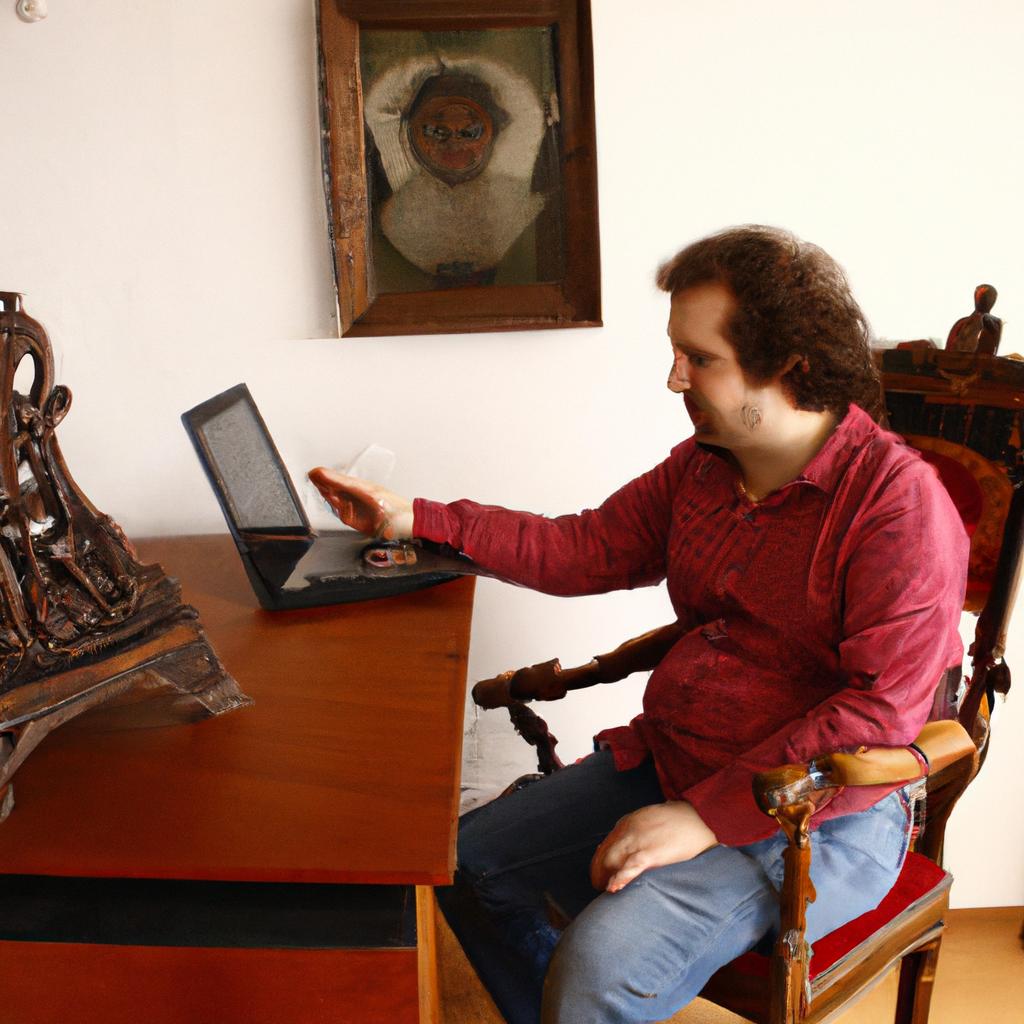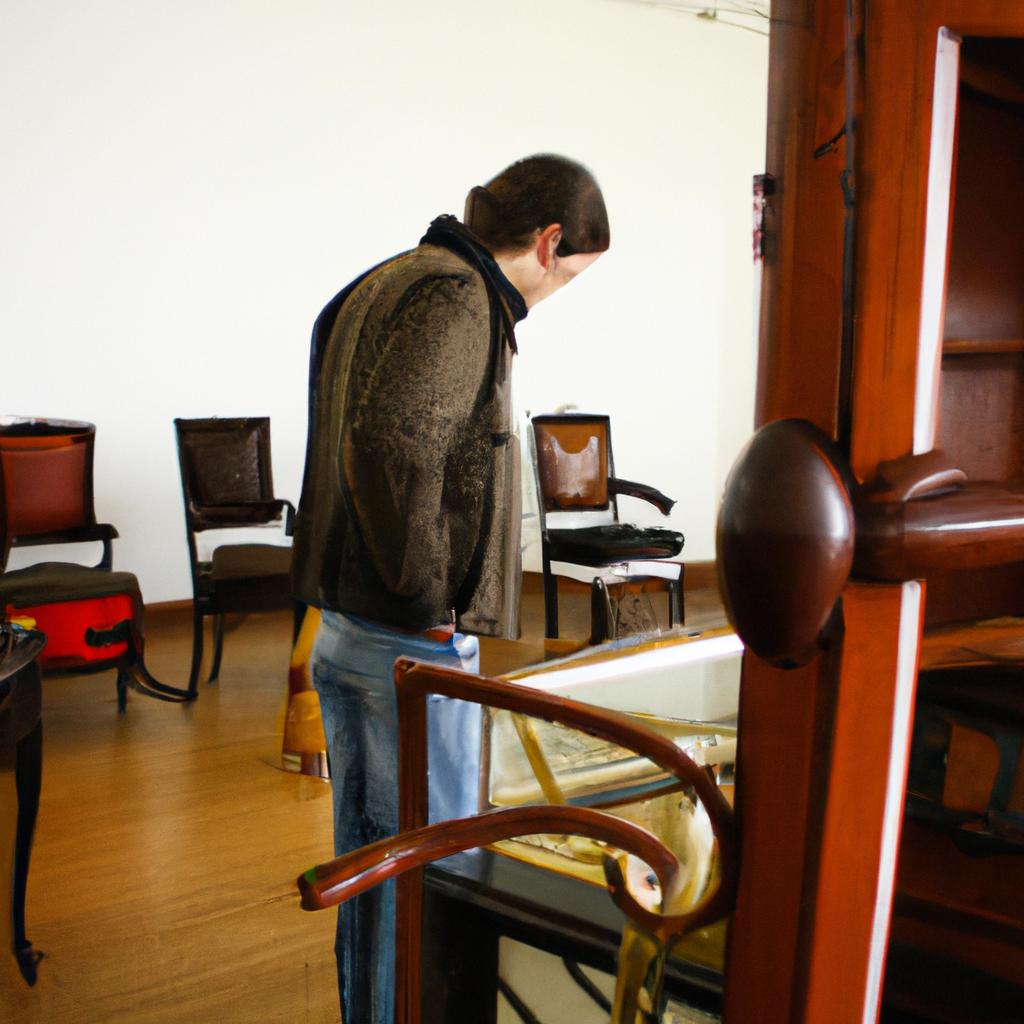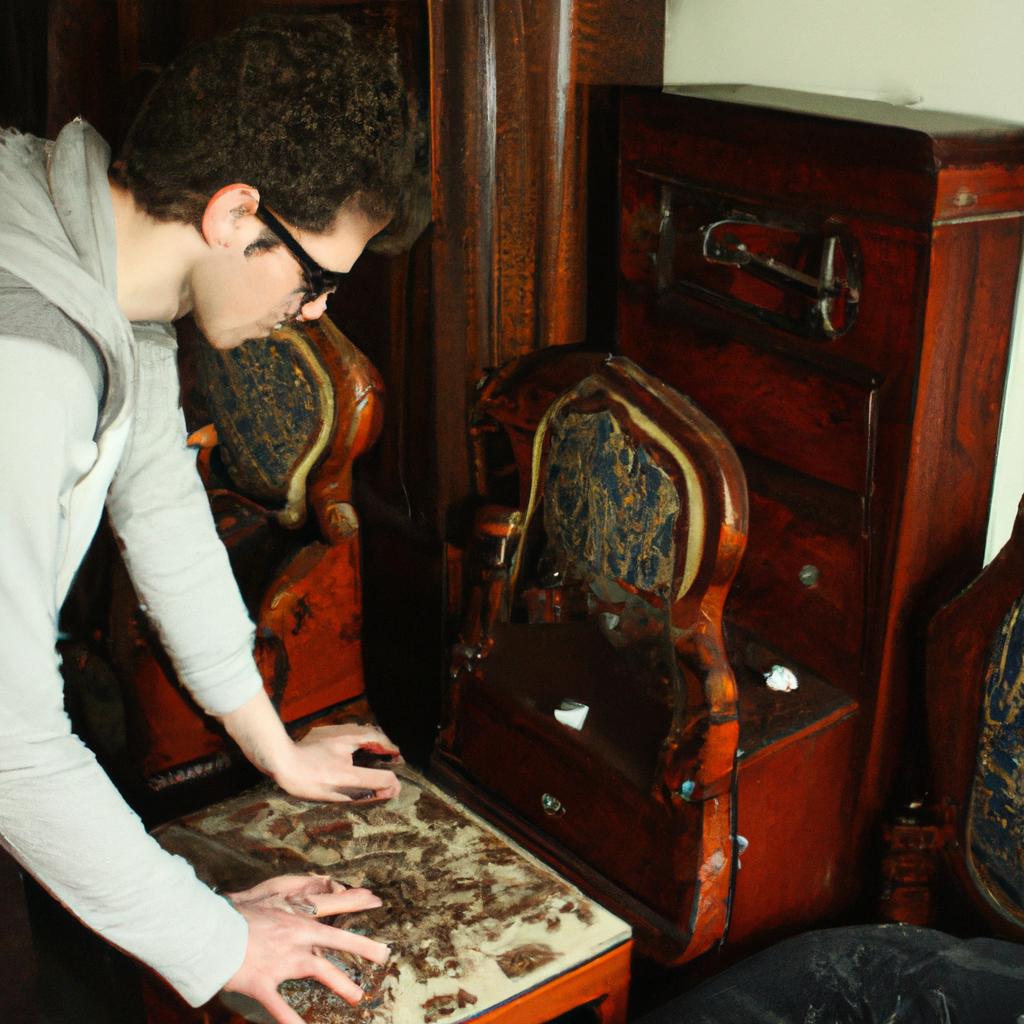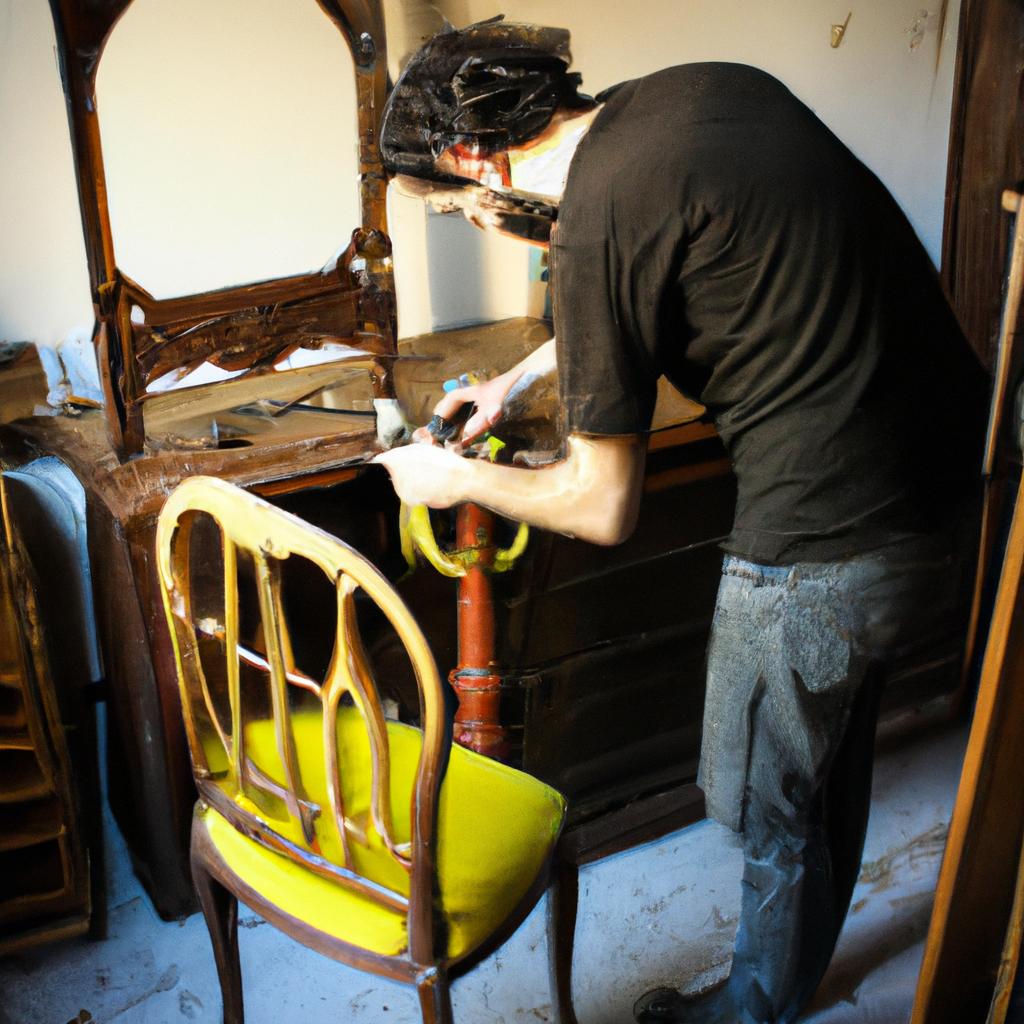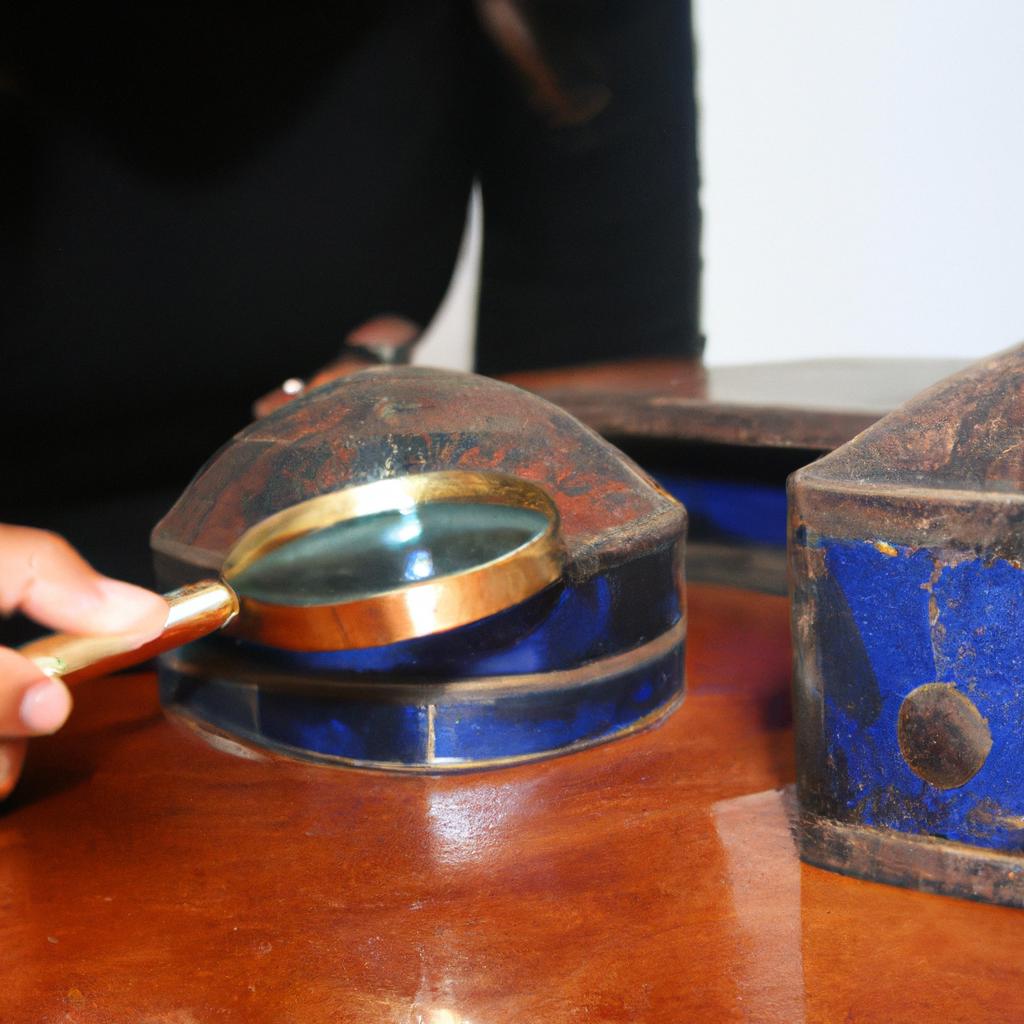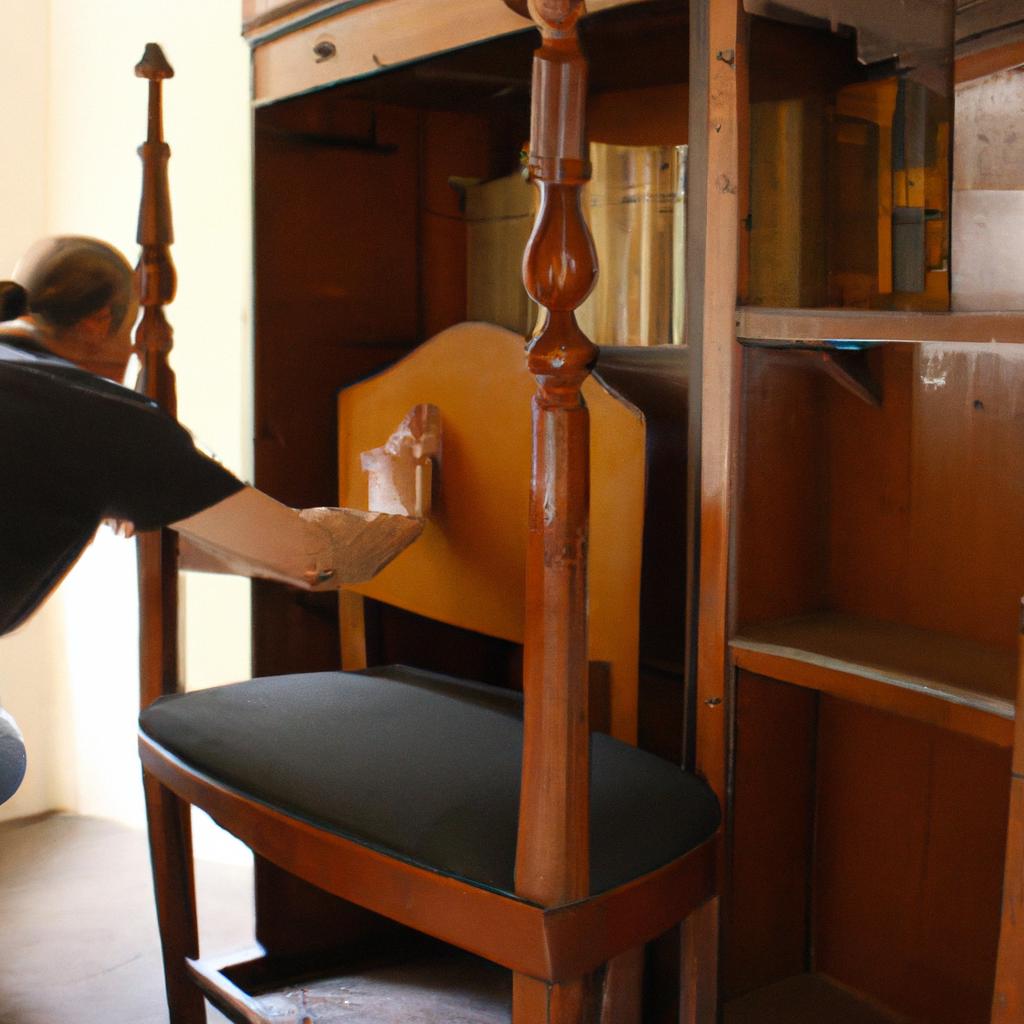Appraisal Services for Antiques and Collectibles: Unlocking the Value of Antique Furniture
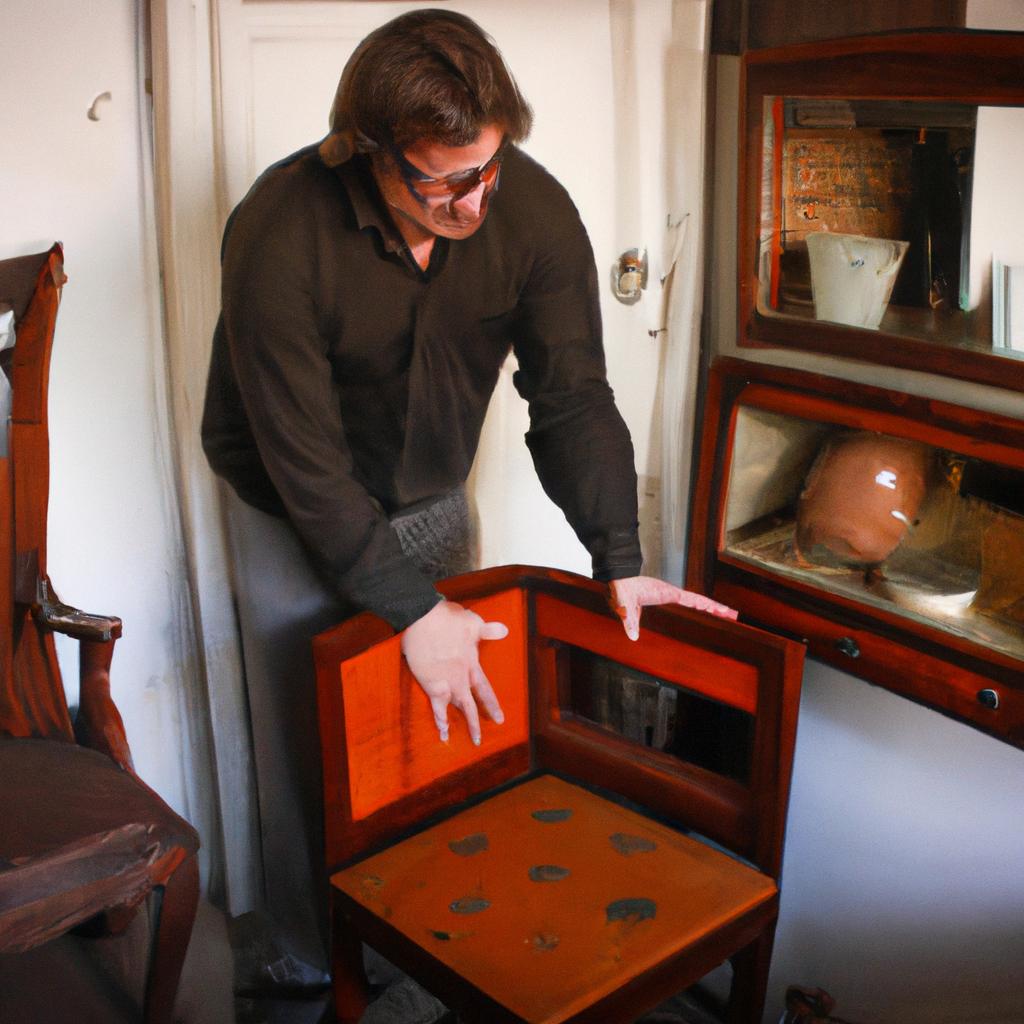
Appraisal services play a crucial role in determining the value of antiques and collectibles, enabling owners to unlock the hidden potential within their possessions. One such example is a hypothetical case study involving an antique furniture piece. Imagine a family inheriting a beautifully carved Victorian-era dining table believed to be worth a substantial amount. However, without proper appraisal and documentation, they are unaware of its true value or how to maximize it for investment or sale purposes. This article aims to explore the significance of professional appraisal services specifically for antique furniture, shedding light on the processes involved, factors influencing valuation, and the benefits that arise from accurate assessments.
In today’s market, where trends constantly evolve and demand fluctuates, appraisals provide antique furniture owners with invaluable knowledge regarding their assets’ worthiness as investments or historical artifacts. The aforementioned Victorian-era dining table mentioned earlier serves as an ideal illustration of this point. By engaging professional appraisal services, the family can ascertain its authenticity, period-specific craftsmanship techniques employed during production, and any significant historical context associated with it. These details not only enhance one’s understanding but also bolster their ability to make informed decisions about restoration efforts or whether selling would yield higher returns in the long run. Moreover, by obtaining an expert evaluation through comprehensive research and analysis, owners can confidently present their antique furniture to potential buyers or auction houses, armed with accurate information about its provenance and unique qualities.
The appraisal process for antique furniture typically involves several key steps. Firstly, a professional appraiser will conduct an initial examination of the piece, assessing its physical condition and identifying any damage or restoration work that may have been done. They will also closely examine the construction techniques, materials used, and any distinguishing features that contribute to its overall value. Next, the appraiser will gather relevant historical information about the piece, such as its origin, manufacturer (if known), and any notable previous owners or associations. This research helps establish the item’s cultural or historical significance, which can significantly impact its appraisal value.
Factors influencing the valuation of antique furniture include age, rarity, condition, aesthetic appeal, and market demand. Older pieces from renowned makers or those featuring intricate craftsmanship tend to command higher prices due to their scarcity and artistic merit. Additionally, original finishes or patinas are highly sought after by collectors and can greatly enhance an item’s value if well-preserved. Conversely, extensive damage or significant alterations may diminish its worth.
Accurate appraisals offer numerous benefits to antique furniture owners. Firstly, they provide peace of mind by establishing the true value of their possessions. This knowledge allows owners to make informed decisions regarding insurance coverage or estate planning. Furthermore, appraisals enable individuals looking to sell their antique furniture to set realistic asking prices that reflect current market conditions accurately. This increases the likelihood of attracting serious buyers who understand and appreciate the item’s worth.
In summary, professional appraisal services play a crucial role in unlocking the hidden potential within antique furniture pieces like our hypothetical Victorian-era dining table. By conducting thorough research and analysis, these services provide valuable insights into authenticity, historical context, and market value—empowering owners with knowledge that can be leveraged for investment purposes or when making decisions about restoration or sale. Through accurate appraisals, antique furniture owners can confidently navigate the ever-changing market and ensure their assets are properly recognized and valued.
Understanding Appraisal Services
Imagine stumbling upon an old wooden chest in your grandmother’s attic. As you open it, the musty scent of history fills the air, and you uncover a collection of antique jewelry, coins, and artwork. Intrigued by their potential value, you contemplate seeking appraisal services to ascertain their worth. In this section, we will delve into the world of appraisal services for antiques and collectibles, exploring what they entail and why they are essential.
Appraisal services play a vital role in determining the monetary value of antiques and collectibles. They involve expert assessment by qualified appraisers who possess extensive knowledge in various fields such as furniture, art, ceramics, or coins. These professionals employ specialized techniques to evaluate items based on factors like age, rarity, condition, provenance (the item’s origin), and market demand. By relying on objective analysis rather than personal preference or sentimental attachment, appraisers provide an unbiased evaluation that reflects current market trends.
To better understand how appraisal services can benefit collectors and owners of antiques, let us consider some key reasons behind seeking professional appraisal:
- Knowledge: Appraisers possess deep expertise within specific niches of antiquities. Their insights offer valuable information about historical context, artist signatures or marks, craftsmanship styles prevalent during different periods or regions – all contributing to a comprehensive understanding of an object’s significance.
- Insurance Coverage: Accurate valuation provided by appraisers enables individuals to secure appropriate insurance coverage for their valuable possessions. This protection ensures financial compensation in case of damage or loss due to unforeseen circumstances.
- Estate Planning: When planning one’s estate or considering inheritance matters involving collectibles or antiques, accurate appraisals help determine equitable distribution among beneficiaries.
- Selling Opportunities: For those looking to sell their antiques or collectibles either privately or through auctions or galleries; having a professional appraisal provides credibility when negotiating with prospective buyers.
Table 1: The Role of Appraisal Services
| Benefits | Description |
|---|---|
| Knowledge | Provides insights into the historical context, craftsmanship styles, and artist signatures or marks. |
| Insurance Coverage | Enables individuals to secure appropriate insurance coverage for valuable possessions. |
| Estate Planning | Helps determine equitable distribution among beneficiaries in estate planning matters. |
| Selling Opportunities | Enhances credibility when negotiating with potential buyers in private sales or auctions. |
Understanding the importance of appraisal services sets the foundation for appreciating how they contribute to unlocking the value of antique furniture and collectibles. In the subsequent section, we will explore further aspects related to appraising your collectibles and its impact on their overall worth.
The Importance of Appraising Your Collectibles
Understanding Appraisal Services for Antiques and Collectibles
Imagine inheriting a beautiful antique chair from your great-grandparents, but having no idea of its true value. This scenario highlights the importance of appraising collectibles to accurately determine their worth. Through professional appraisal services, individuals can unlock the hidden potential in their antiques and collectibles by gaining insights into their history, craftsmanship, and market demand.
When seeking an appraisal service for antiques and collectibles, it is essential to understand what these services entail. Appraisers are experts with extensive knowledge and experience in assessing the value of various items based on factors such as age, condition, rarity, provenance, and current market trends. Additionally, they take into account historical significance or celebrity ownership if applicable. By engaging an appraiser’s services, you gain access to their expertise in evaluating different types of antiques and collectibles accurately.
Appraisal services provide numerous benefits that go beyond determining monetary value alone. Firstly, they offer peace of mind by ensuring that you possess accurate information about your belongings’ worth. Secondly, appraisals serve as documentation for insurance purposes; should any damage occur while preserving or transporting valuable pieces, you have proof of their initial value. Moreover, understanding the historical context behind your antiques adds sentimental value and enhances appreciation for family heirlooms or cherished collectibles.
Consider the following emotional response evoked by a bullet-point list:
- Discovering the hidden stories behind your treasured possessions
- Unleashing nostalgia through uncovering forgotten memories associated with antiques
- Honoring family legacy by appreciating inherited items
- Fostering connections between generations through sharing tales connected to valued collectibles
Now let us explore how an example table can further engage our audience emotionally:
| Type of Antique | Emotional Connection |
|---|---|
| A vintage pocket watch passed down through generations | Feeling a sense of heritage and connection to ancestors |
| A porcelain doll that evokes childhood memories | Recalling innocent joy and sentimentality |
| An antique map of a favorite travel destination | Inspiring wanderlust and fond reminiscence |
| A family-owned painting depicting cherished moments | Preserving sentimental ties with loved ones |
By understanding the significance of appraisal services and their emotional impact, individuals can ensure they fully appreciate the worth and stories behind their antiques and collectibles. In our next section, we will delve into factors that can influence the value of these unique items, shedding light on how various elements can shape their overall worth. Factors such as condition, rarity, provenance, and current market trends play a crucial role in determining an item’s value. So let us explore further how these components interact within the realm of antique appraisals.
Factors Affecting the Value of Antiques
Unlocking the true value of antique furniture requires a comprehensive appraisal process that takes into account various factors. By understanding these factors, collectors and owners can gain insight into the historical significance, craftsmanship, and rarity of their pieces. This section will explore some key aspects that affect the value of antiques.
For instance, let’s consider an antique oak dining table dating back to the late 19th century. With its ornate carvings and elegant design, this piece showcases exceptional craftsmanship representative of the Victorian era. However, without a proper appraisal, its true worth may go unnoticed.
One factor influencing the value of antiques is provenance – the documented history of ownership tracing back to the original maker or notable figures associated with it. A well-documented lineage not only adds authenticity but also increases desirability among collectors. The presence of labels, maker’s marks, or signatures further enhances provenance.
Condition plays another crucial role in determining an item’s value. Damage or restoration work can significantly impact how much someone is willing to pay for an antique piece. For example, a chair with missing legs or extensive repairs might lose substantial value compared to one in pristine condition.
Furthermore, scarcity affects market demand and consequently influences prices. Some antiques are produced in limited quantities due to short production runs or being exclusive to certain regions or makers. Such rare items tend to fetch higher prices at auctions and attract enthusiastic buyers willing to invest in unique collectibles.
To emphasize these points further:
- Provenance: Discovering that your heirloom belonged to a renowned historical figure can evoke a sense of pride and fascination.
- Condition: Imagine finding an exquisite vase from ancient China that has survived through centuries unscathed; such a discovery would be awe-inspiring.
- Scarcity: Owning something truly one-of-a-kind creates feelings of exclusivity and accomplishment.
- Rarity: Uncovering an artifact believed lost forever generates excitement akin to a treasure hunt.
To consolidate the information, here is a table summarizing the factors affecting the value of antiques:
| Factors | Impact on Value |
|---|---|
| Provenance | Increases |
| Condition | Decreases |
| Scarcity | Increases |
| Rarity | Increases |
Understanding these aspects can help collectors and owners navigate the appraisal process with more knowledge and confidence. In the subsequent section about “Different Types of Appraisal Methods,” we will delve into how professionals utilize various methods to determine accurate valuations for antiques and collectibles.
Different Types of Appraisal Methods
When it comes to appraising antiques and collectibles, there are several factors that can significantly impact their value. Understanding these factors is essential for anyone looking to unlock the true worth of antique furniture or other valuable items. Let’s examine some key elements that influence appraisal values.
One example that illustrates the importance of these factors involves a vintage oak dining table from the early 20th century. This particular piece showcases intricate carving details and excellent craftsmanship. However, its overall condition plays a crucial role in determining its value. If the table has been well-maintained with minimal signs of wear, its appraisal will likely be higher compared to a similar table with noticeable damage or extensive repairs.
To further understand how various aspects affect an item’s appraisal value, consider the following:
- Rarity: The scarcity of an antique or collectible greatly influences its market value. Items that are hard to find are often highly sought after by collectors, which drives up their prices.
- Provenance: An object’s documented history and origin can have a significant impact on its desirability and value. If an antique can be traced back through different owners or historical events, it adds to its appeal and potential appraisal value.
- Market trends: Like any other industry, the world of antiques is subject to changing trends and preferences among buyers. Keeping up-to-date with current market demands is vital when appraising items, as certain styles or categories may experience fluctuations in popularity over time.
- Condition: As mentioned earlier, an item’s state of preservation directly affects its valuation. Mint-condition pieces typically command higher prices than those with visible flaws or signs of deterioration.
These factors interact dynamically during the appraisal process and contribute to establishing fair market values for antiques and collectibles. By considering rarity, provenance, market trends, and condition, professional appraisers are able to provide accurate assessments based on objective criteria.
Understanding these methodologies can help individuals make informed decisions when seeking professional appraisals for their treasured possessions.
Having a solid grasp on the factors influencing appraisal values is crucial when choosing a reliable appraiser who can provide accurate assessments for your antique furniture or other valuable items.
Choosing a Reliable Appraiser
Unlocking the Value of Antique Furniture: Choosing a Reliable Appraiser
Imagine you stumble upon an old wooden chest in your attic and suspect it may be worth something. To determine its value, hiring a reliable appraiser is essential. A case study involving a rare antique chair will shed light on why selecting the right professional for appraisal services is crucial.
In 2018, John inherited a vintage Queen Anne armchair from his grandmother. Intrigued by its potential value, he sought the expertise of two different appraisers to assess its worth. The first appraiser conducted a thorough examination of the chair’s construction techniques, materials used, and overall condition. They also researched comparable sales data to provide John with an accurate estimate. In contrast, the second appraiser merely glanced at the chair before offering a vague valuation based on their intuition alone. Ultimately, John decided to sell the chair through an auction house recommended by the first appraiser and achieved significantly higher returns than anticipated.
When choosing a reliable appraiser for your antiques or collectibles, consider these key factors:
- Experience: Look for professionals who specialize in evaluating items similar to yours.
- Accreditation: Ensure that the appraiser holds recognized certifications or memberships in reputable organizations such as International Society of Appraisers (ISA), American Society of Appraisers (ASA), or Appraisers Association of America (AAA).
- Methodology: Inquire about their evaluation process and ask if they utilize industry-standard appraisal methodologies like comparative market analysis or cost approach.
- Reputation: Seek recommendations from trusted sources such as friends, family members, or local antique dealers.
Table: Factors to Consider When Selecting an Appraiser
| Factor | Importance |
|---|---|
| Experience | High |
| Accreditation | Medium |
| Methodology | High |
| Reputation | High |
By carefully considering these factors, you can ensure that the appraiser you choose will provide an accurate and reliable valuation for your antique furniture or collectibles. The next section will discuss how to maximize the value of your antique collection by preserving its condition and marketing it effectively.
Now let’s explore some strategies for maximizing the value of your antique collection.
Maximizing the Value of Your Antique Collection
Unlocking the Value of Antique Furniture: Maximizing the Return on Your Investment
Imagine discovering an antique chair in your attic that you believe holds significant value. You may be eager to determine its worth and maximize your return on investment. In order to achieve this, it is crucial to engage the services of a reliable appraiser who specializes in antiques and collectibles.
A reputable appraiser possesses extensive knowledge about different types of furniture, their history, and market trends. They are able to evaluate the condition, rarity, authenticity, and provenance of your antique piece accurately. For instance, let’s consider a hypothetical scenario where you own a 19th-century Victorian armchair with intricate woodwork and upholstery. An experienced appraiser would take into account factors such as the chair’s craftsmanship, period-specific style, any notable historical connections or previous ownership records when estimating its value.
To ensure you select a trustworthy appraiser for your antique collection, here are some key considerations:
- Qualifications: Look for professionals who have obtained relevant certifications from recognized organizations like the International Society of Appraisers or the American Society of Appraisers.
- Expertise: Choose an appraiser with specialized knowledge in evaluating antique furniture specifically rather than someone with a generalized understanding of valuing various objects.
- Experience: Seek out individuals who have years of experience working in the field and possess a track record of accurate assessments.
- Reputation: Research customer reviews and seek recommendations from trusted sources to gauge an appraiser’s reputation for professionalism and integrity.
By carefully selecting an expert appraiser based on these criteria, you can confidently proceed towards maximizing the value of your antique collection.
Table Example:
| Key Considerations | Description |
|---|---|
| Qualifications | Relevant certifications from recognized organizations |
| Expertise | Specialized knowledge in evaluating antique furniture |
| Experience | Years of experience and a track record of accurate assessments |
| Reputation | Positive customer reviews and recommendations from trusted sources |
In conclusion, unlocking the value of antique furniture requires engaging the services of a reliable appraiser. By considering their qualifications, expertise, experience, and reputation, you can confidently navigate the appraisal process. Remember that each piece is unique, and its true worth may only be revealed through the careful evaluation conducted by an experienced professional in this specialized field.

